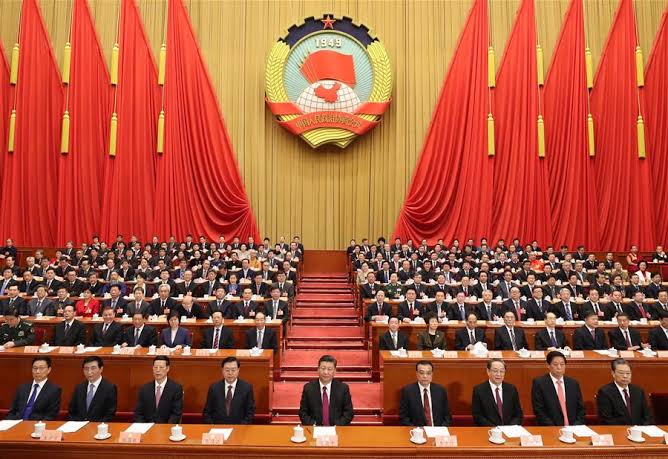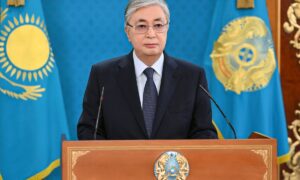CPC’s rigorous self-governance: An unremitting effort

Beijing, The Gulf Observer: With over 96 million members as of 2021, the Communist Party of China (CPC) is the largest Marxist ruling party in the world. Managing such an organization and ruling the world’s largest socialist country, with a population of 1.4 billion, is full of challenges.”Self-governance” has been identified as a key element in the Party’s continued success and effective governance.
In his report to the 20th CPC National Congress, Xi Jinping, general secretary of the CPC central committee, stressed that “full and rigorous self-governance is an unceasing endeavor, and that self-reform is a journey to which there is no end.”Cracking down on corruption”Nothing can easily bring down a government like corruption, and the fight against corruption is the most thorough form of self-reform,” Xiao Pei, deputy head of the Central Commission for Discipline Inspection (CCDI) of the CPC Central Committee and vice chairman of the National Supervisory Commission of the People’s Republic of China, said during a press conference at the 20th CPC National Congress.
Since the 18th CPC National Congress, the CCDI has set up 4.648 million cases for investigation, and 25,000 bureau-level officials as well as over 182,000 county-level officials have been punished.
The CCDI work report in 2022 underscored the significance of using the Party’s own transformation to steer social transformation and declared the Party’s firm resolve to keep improving conduct, promoting integrity and fighting corruption with sober-minded determination to make this an unceasing endeavor, Xi said at the closing session of the 20th CPC National Congress.
The latest survey by the National Bureau of Statistics suggests that 97.4 percent of people are fully confident in the work of exercising strict governance over the Party for curbing the spread of corruption, a 22.4 percentage point rise on the figure in 2012.
“The courage to exercise self-reform is the most distinct difference of the CPC from other political powers,” Xia Lu, a professor at the School of Marxism Studies at Renmin University of China, told CGTN.
“Only this way can the Party reach the deep-seated interest relations and contradictions when carrying out various tasks, break through the shackles of ideology, break down the barriers of solidified interests, and remove institutional obstacles that hinder economic development,” Xia added.
“The ultimate mission is to realize national rejuvenation and bring happiness to its people.”Common recognition of anti-corruption China’s anti-corruption work has won global understanding and support.
During the 14th BRICS (Brazil, Russia, India, China and South Africa) Summit in 2022, an Anti-corruption Ministerial Communique was recognized by all members, and a joint anti-corruption commitment was mentioned in the Beijing Declaration for the first time.
After five consecutive years of the country’s “Sky Net” campaign – an operation dedicated to tracking down corrupt fugitives overseas and recovering their illegal gains – a total of 6,900 fugitives have been retrieved, including 1,962 Party members and state employees, and 32.786 billion yuan ($6.35 billion) of illegal gains were recovered, according to the CCDI’s report.
The ‘second answer’Since the 18th National Congress of the CPC in 2012, the problem of lax and weak governance of Party organizations has been addressed at the fundamental level.
The Party has found self-reform to be the second answer to the question of how to break the historical cycle of rise and fall, Xi said in the report.In exercising full and rigorous self-governance, the Party has made sure to run under the Party’s Constitution with an improved framework of Party regulations.The CPC has nearly 4,000 intra-Party regulations in effect.
Among them, nearly 70 percent were amended in the past 10 years.”It is based on such a clear understanding of the unique difficulties facing the Party, that Xi Jinping pointed out in the report that full and rigorous Party self-governance is an unceasing endeavor and that self-reform is a journey with no end,” Tian Peiyan, deputy director of the Policy Research Office of the CPC Central Committee, said at a press conference during the 20th CPC National Congress.


